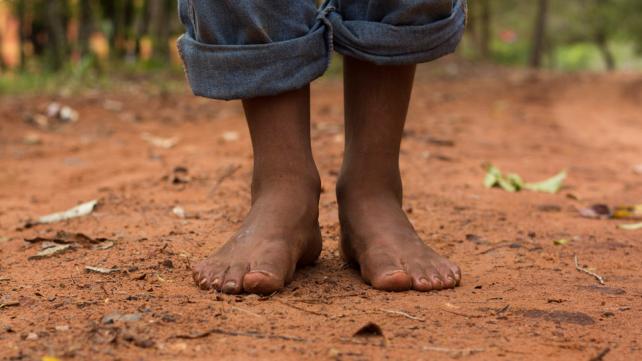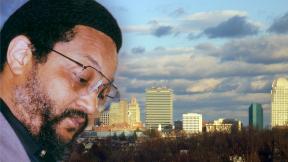
The dichotomy between living Islam in North America and the pursuit of more mundane ideals is perhaps best symbolized by the Statue of Liberty. Prominently standing atop Ellis Island outside of Manhattan, New York, Lady Liberty, like a distant lighthouse beaconing a storm weary ship, heralds the world's tired, poor and dispossessed to the proverbial land of opportunity. Relative to the economic, and even socio-political conditions that many arrivals have fled, America, to many, does seem to offer a virtual endless number of upward bootstrap pulling circumstances. If one is favorably disposed to ignore the institutional obstacles and individual acts of prejudice impeding the social mobility of many of the "others" (non-White Anglo-Saxon Protestants) in the United States, the shallow conclusion can be drawn that only laziness and a penchant for criminal behavior stand between residents in America and the fulfillment of the American Dream.
This social blindness has contributed mightily to many Muslim "huddled masses" in the United States emotionally and religiously divesting themselves of responsibility to attend to the neighborly needs of the have nots. This despite the fact that Muslims are divinely mandated to attend to the social needs of others, not as a philanthropic gesture, but as a prerequisite condition for faith (iman) itself, and a tangible acceptance of the Hereafter. In Surah Ma'un 107:1-7, Allah says:
"Have you ever seen a human being who contradicts the (essence of) faith (in Allah and His Judgment)? That is the person who pushes the orphan aside and does not promote feeding the needy."
Woe, then, unto those who pray, but their hearts and minds from (the essence and message of) their prayers are remote, those who (want but) to be seen and praised, whereas they refuse to help others (who need help)"
The Sunnah (established tradition) of the Prophet Muhammad ibn Abdullah, peace and blessings be upon him, is no less emphatic in establishing the functional imperative of Muslims addressing societal deprivation. In a hadith contained in the Musnad of Ahmed:
Abu Hurairah reported that a man complained to Rasulullah, peace and blessings be upon him, about the hardness of his heart and he said, "Be benevolent to orphans and feed the poor."
As the social indicators of the widening gap between the haves and the have nots scream out for redress, too many Muslims continue to imitate cattle by not being able to distinguish between legitimate and bogus cries for help in the land. The collective conscience of the Ummah in North America is too often soothed by checkbook taubah (repentance), as charitable donations are almost exclusively forwarded to overseas zip/postal codes; if at all. The almost 40 million identifiable impoverished persons in the U.S. (40 percent of whom are children), coupled with the millions of homeless men, women and children (many sleeping on sidewalk heat grates in front of federal government buildings in the nation's capital), are potential witnesses against the Muslims on the Day of Judgment. Social obligations are not frivolous duties. Crimes against Allah may be forgiven in this world. But, social crimes and the usurpation of the rights of others will be settled in the Hereafter with Allah restoring the rights of the ill-treated.
"Tell my servants who have attained to faith that they should keep up prayers, and spend (on whosoever is in need and on what the whole society needs) out of what We have provided for them as sustenance, secretly and openly, before the coming of a Day on which there is no place for bargaining, or intimate relationship" (Quran 14:31).





Add new comment